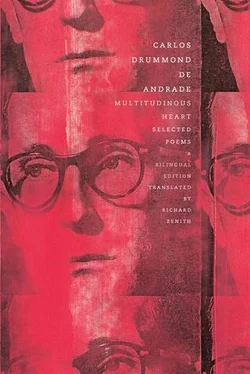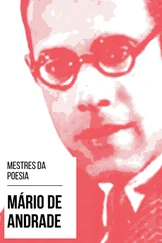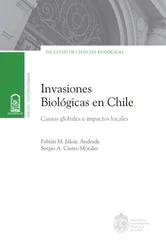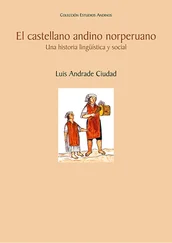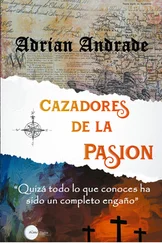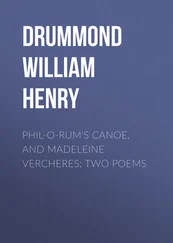It’s my sealed envelope,
a threatening gun,
and finally my jailer:
it knows me better than I do.
My body deletes the memory
I once had of my mind.
It plants in me its pathos,
which strikes, wounds, condemns me
for crimes I didn’t commit.
Its most diabolical trick
is to make itself sick, forcing
me to bear the weight
of each new ache it weaves
and passes to me in disgust.
That’s why my body invented
pain: to make it internal,
an integral part of my id,
where it dims the light that tried
to spread into every corner.
At times my body has fun
without my knowledge and against
my will, and as the vicious
pleasure runs through its cells,
it laughs at my nonreaction.
Ordering me to go out
in search of what I don’t want,
it negates my ego, affirming
itself to be lord of my I,
reduced to a servile dog.
Instead of me, my greedy
body is the one that feels
my most exquisite pleasure,
giving only chewed-up scraps
to my unsatiated hunger.
If I try to get away
by thinking of abstract things,
it comes back to me with all
the weight of its filthy flesh,
its boredom and discomfort.
I want to break with my body,
I want to confront and accuse it
for having annulled my essence,
but it goes off on its own
and doesn’t even hear me.
Constantly pressed by its pulse
that never misses a beat,
I’m not who I used to be:
led by its sensual step,
I go dancing with my body.
Nudez, último véu da alma
que ainda assim prossegue absconsa.
A linguagem fértil do corpo
não a detecta nem decifra.
Mais além da pele, dos músculos,
dos nervos, do sangue, dos ossos,
recusa o íntimo contato,
o casamento floral, o abraço
divinizante da matéria
inebriada para sempre
pela sublime conjunção.
Ai de nós, mendigos famintos:
Pressentimos só as migalhas
desse banquete além das nuvens
contingentes de nossa carne.
E por isso a volúpia é triste
um minuto depois do êxtase.
With only nakedness, its final
veil, the soul’s still out of reach.
The body’s fertile language
can’t detect or interpret it.
Beyond the skin, muscles,
nerves, blood, and bones,
our soul shuns intimate contact,
the floral wedding, the deifying
embrace of matter forever
intoxicated by the sublime
act of union.
We’re but starving beggars
who barely sniff the crumbs
of that banquet in the clouds
celebrated by our flesh.
And that’s why sensuality’s sad
one minute after ecstasy.
Por muito tempo achei que a ausência é falta.
E lastimava, ignorante, a falta.
Hoje não a lastimo.
Não há falta na ausência.
A ausência é um estar em mim.
E sinto-a, branca, tão pegada, aconchegada nos meus braços,
que rio e danço e invento exclamações alegres,
porque a ausência, essa ausência assimilada,
ninguém a rouba mais de mim.
I used to consider absence a lack.
And I ignorantly regretted that lack.
Today I have nothing to regret.
There is no lack in absence.
Absence is a presence in me.
And I feel it, a perfect whiteness, so close and cozy in my arms
that I laugh, dance, and invent glad exclamations,
since absence, this embodied absence,
can’t be taken away from me.
A porta da verdade estava aberta,
mas só deixava passar
meia pessoa de cada vez.
Assim não era possível atingir toda a verdade,
porque a meia pessoa que entrava
só trazia o perfil de meia verdade.
E sua segunda metade
voltava igualmente com meio perfil.
E os meios perfis não coincidiam.
Arrebentaram a porta. Derrubaram a porta.
Chegaram ao lugar luminoso
onde a verdade esplendia seus fogos.
Era dividida em metades
diferentes uma da outra.
Chegou-se a discutir qual a metade mais bela.
Nenhuma das duas era totalmente bela.
E carecia optar. Cada um optou conforme
seu capricho, sua ilusão, sua miopia.
The door of truth was open
but would only let in half
a person at a time.
And so it wasn’t possible to have the whole truth,
since the half person who entered
returned with the picture of a half truth.
And the person’s other half
likewise brought back a half picture.
And the two halves didn’t line up.
They broke through the door. They tore it down.
They arrived at the luminous place
where the truth beamed its brilliant fires.
It was divided into two halves,
one different from the other.
They argued over which half was more beautiful.
Since neither half was entirely beautiful,
they had to choose. And so each person chose
according to his whim, his illusion, his myopia.
FAREWELL / FAREWELL (1987; FIRST PUBLISHED IN 1996)
As plantas sofrem como nós sofremos.
Por que não sofreriam
se esta é a chave da unidade do mundo?
A flor sofre, tocada
por mão inconsciente.
Há uma queixa abafada
em sua docilidade.
A pedra é sofrimento
paralítico, eterno.
Não temos nós, animais,
sequer o privilégio de sofrer.
Plants also suffer.
Why wouldn’t they, if suffering
is the key to the world’s unity?
A flower suffers when touched
by the oblivious hand.
There’s a muffled complaint
in its soft pliancy.
A stone is paralytic,
eternal suffering.
We who are animals
can’t even claim
the exclusive privilege of suffering.
Bati no portão do tempo perdido, ninguém atendeu.
Bati segunda vez e outra mais e mais outra.
Resposta nenhuma.
A casa do tempo perdido está coberta de hera
pela metade; a outra metade são cinzas.
Casa onde não mora ninguém, e eu batendo e chamando
pela dor de chamar e não ser escutado.
Simplesmente bater. O eco devolve
minha ânsia de entreabrir esses paços gelados.
A noite e o dia se confundem no esperar,
no bater e bater.
O tempo perdido certamente não existe.
É o casarão vazio e condenado.
I knocked on the doors of lost time. No one answered.
I knocked a second time, a third, a fourth.
No answer.
The house of lost time is half covered
with ivy; the other half is ashes.
A house where no one lives, and me knocking and calling out
because it hurts to call and not be heard.
Knocking, knocking. The echo returns
my desperate longing to open, at least a little, this frozen palace.
Night and day become the same haze in my waiting,
in my knocking and knocking.
Lost time surely doesn’t exist.
The imposing house is vacant and condemned.
Many of Drummond’s poems were published in periodicals before being included in book collections. The notes provide initial publication dates only for the earliest poems, before his first book saw print, in 1930.
Seven-sided Poem
First published in December 1928.
The word gauche, in the third line of the poem in Portuguese, has the French meaning of “clumsy, awkward,” different from what the word usually means in English: “tactless, socially inept.” Much has been written about Drummond’s self-characterization as gauche, which recurs in “A mesa” (“The Table”), here. The Brazilian critic Affonso Romano de Sant’Anna used the notion as his central point of reference for analyzing the poet’s work in Drummond: o gauche no tempo. This book defines the poet’s gauche persona as an “eccentric” who, beset by “the constant disparity between his reality and outward reality,” is condemned to behaving like “a displaced person within the ensemble” ( displaced person in English in the original).
Читать дальше
